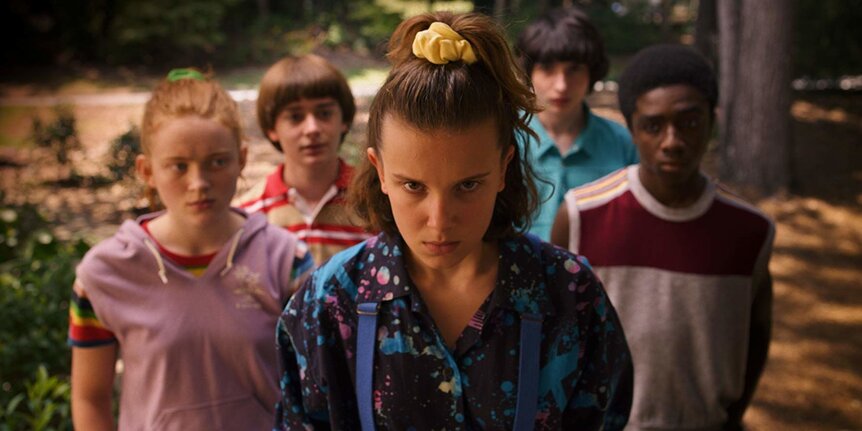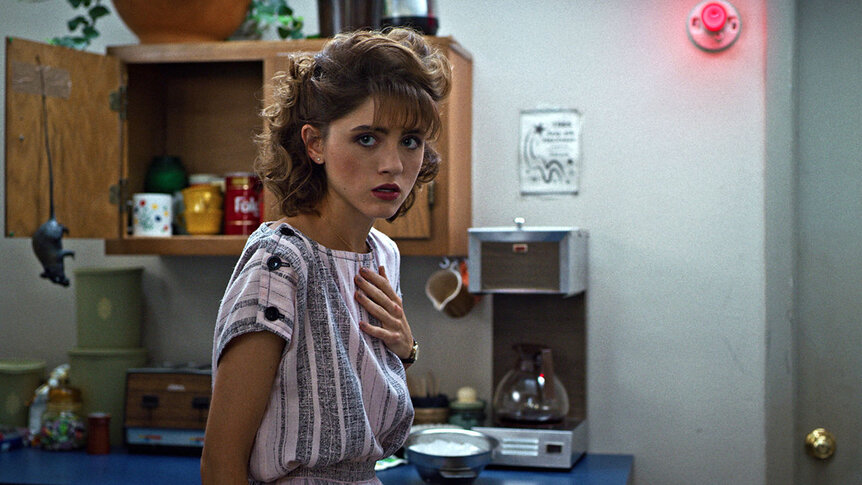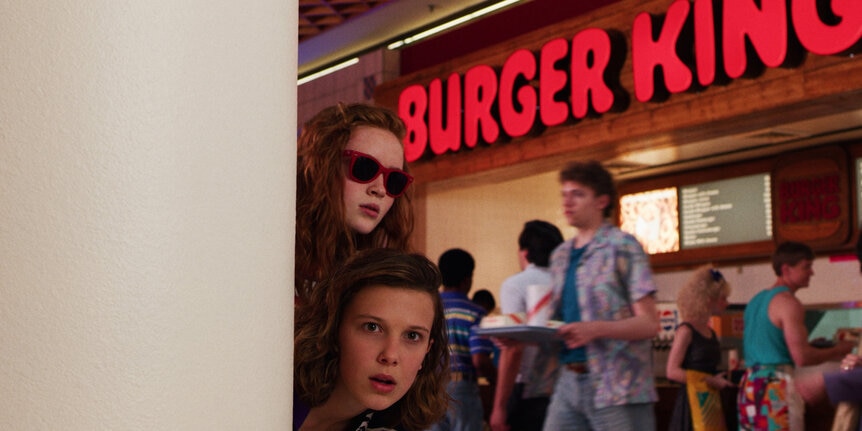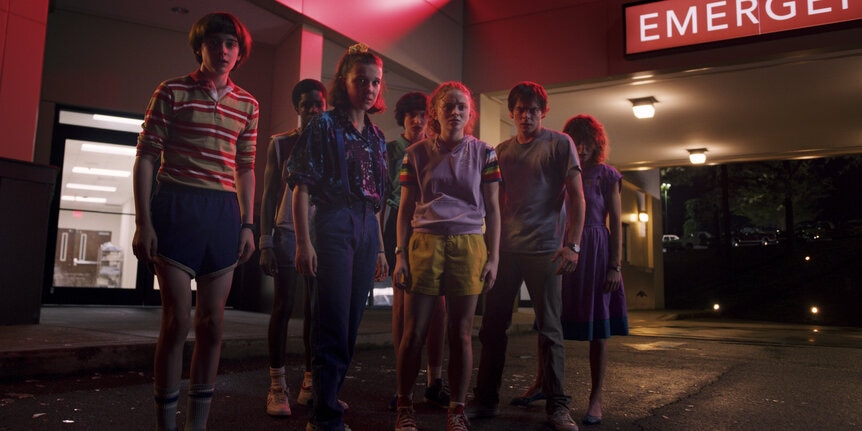Create a free profile to get unlimited access to exclusive videos, sweepstakes, and more!
Stranger Things, Cold War nostalgia and bringing the past to 2019

As a love letter to pop culture of the 1980s, Stranger Things cannot avoid also paying homage to the Cold War interpretations from that era. The first season kicked off in 1983, a year in which President Reagan delivered the “Evil Empire” speech and ABC aired The Day After. The latter portrayed what it might look like if the USSR launched a nuclear strike on U.S. soil and was viewed by more than 100 million people. Thanks to historical hindsight, we know that by the end of this decade, the Berlin Wall would be pulled down, symbolically ending the Cold War. This period is brimming with political anxiety, but unlike the characters, we know everything is going to be okay. Or is it?
Prior to Season 3 of Stranger Things, the Russians have been the enemy to keep an eye on rather than an immediate threat. They are the reason why Eleven (Millie Bobby Brown) was “created” — or, more specifically, the nefarious experiments conducted on Eleven were done under the guise of protecting America.
Spoilers ahead for Season 3 of Stranger Things.
Truth meets fiction in Eleven's backstory as the shady government organization behind Project MKUltra also developed her abilities to spy on someone without having to leave home soil. This is what caused the rip in dimensions, unleashing havoc from within. As with the nuclear arms race, there are no winners in this scientific discovery. When one country has a weapon this powerful, everyone wants it. It doesn’t matter if it won’t be used, because its very existence poses a threat.
When Stranger Things debuted in the summer of 2016, election campaigning was particularly fierce. The Podesta hack occurred in March of that year, so it is very unlikely it had any impact on the writing or editing of this first season. However, references to spy technology, including Eleven’s role as a transmission device, might be a nod to the perils of modern communication methods.
The new season does not get the same luxury of avoiding the current political climate. Not only have things changed a great deal over the last three years, but there are some pretty strong winks to contemporary conflicts. This is most notable in the Hawkins Post newsroom scenes, where Nancy (Natalia Dyer) has to deal with a room full of sexist jerks who simply view her as the girl who delivers lunch. Anything that deals with this kind of behavior tends to now be framed as a #MeToo storyline, but Dyer explains to The Hollywood Reporter that it reflects both past and present: "It’s so relatable. And, of course, it's a period show — and to see that and be like, 'Oh yeah, the '80s.' But to recognize that people are obviously still feeling this so much.”
Another overt nod to the present day wrapped up in this ‘80s period is the discussion of news and trust. When Nancy and Jonathan (Charlie Heaton) are fired for pursuing a story in Episode 3, their boss labors on the word “facts.” He might as well use the term “fake news” with this heavy-handed subtext. At this point, he has been taken over by the Mind Flayer, so in reality, he is the one that can’t be trusted. The person making a big deal about the role of the press is the one manipulating it for his benefit. The Mind Flayer is in control, which mirrors the way bots infiltrate social media to distort the truth and promote lies. It is The Thing meets Russian content farms.
The Mind Flayer turns the citizens of Hawkins into mindless automatons, which could also be an indictment of the new Starcourt Mall. People flock in droves, seduced by the bright lights and endless options. Look how shiny it is! The choice of food, clothing, and entertainment is vast and all under one roof. It is alluring and hard to resist — much like the many Stranger Things Season 3 tie-ins, from Burger King to Levi's. However, the new mall is the bedrock of evil in Hawkins, as the Russian villains work within its very foundations and local businesses are closing as a result. The irony of the Soviets choosing the symbol of American wealth as their hideout isn't lost on anyone.
Ten-year-old Erica (Priah Ferguson) is the spokesperson for this American and capitalist way of life: “Can’t spell America without Erica.” She agrees to the Scoop Troop plan, but not before explaining her reasons. It is less about a duty to one's country and more about payment. She is also the most vocal in her feelings about the Russian threat referring to the secret underground facility as “Commie Disneyland.” As she was born in 1975, Erica has likely grown up with strong anti-Soviet rhetoric. The “Red Scare” is alive and well in Hawkins, Indiana.
On the other end of the scale is Murray (Brett Gelman), who explains the concept of fairground games to Alexei (Alec Utgoff) in terms that also sum up the trappings of a capitalist system: “They have been designed to present the illusion of fairness. But it is all a scam, a trick to put your money in the rich man’s pocket. That, my dear friend, is… America.” Even when Alexei thinks he has beat the system, he still loses. When one gives, the other takes away.
The super corrupt Mayor Larry Kline (Cary Elwes) is in bed with the Russians, which is a political tale as old as time. It is also a tale that has been dominating the news for the last three years. Stranger Things makes allusions to the current crisis, much in the same way that '80s genre movies referenced the political landscape.
Shady figures exist on both sides of this political game; neither the Soviets and the United States are wholly good or bad, but it is worth noting that the monster is defeated on the most American of days, the 4th of July and the location of the victory is a shiny example of American prowess and capitalism. The mall might be slightly trashed but these stores won’t be put out of business (for now, at least). The same cannot be said for Hawkins Main Street. Again, it is hard to know exactly what the Duffers are trying to say or where they land on the whole consumerism angle of Season 3. It is a very centrist approach that refuses to take a strident stance on either side of the fence.
In a very fun season, some of the clunkier moments occur within the Russian storyline. At times it is hard to tell if the stereotypes are simply riffing on movies such as Red Dawn, which came out in 1984 and gets namechecked by Dustin, or if it is lazy storytelling. The opening sequence of the first episode reveals the Soviet plan to open the gate — complete with a snowy landscape, Russian dialogue, and a close-up of the USSR flag (just in case you still didn't recognize the setting). The superstrong Russian villain tracking our heroes is also a good example of this. Sure, they need to be running from someone, but the endless homage to The Terminator via Grigori’s (Andrey Ivchenko) pursuit of Hopper (David Harbour) doesn't really go anywhere beyond what is now an '80s movie villain cliché.
Nostalgia is great and all, but if you scratch the surface some of the narrative threads are worryingly hollow. I don't need Stranger Things to make a strong thesis statement about the perils of communism and capitalism, but sometimes it is hard to tell exactly what it is trying to say beneath its carefully constructed love letter to ‘80s movies. Maybe that is all the Duffers are trying to do. However, with nods to fake news and politicians making deals with Russian villains it is more than just a portrayal of Cold War-era tensions and the movies from this time.
In using the Red Scare of the past alongside fake news fears of the present, the most terrifying dimension of all is our own. History like Hollywood has a fondness for repeating, recycling, and rebooting. Let's just hope we don't all get Mind Flayed.
The views and opinions expressed in this article are the author's and do not necessarily reflect those of SYFY WIRE, SYFY, or NBC Universal.































